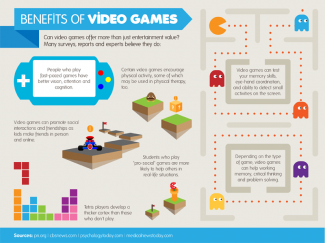One of the most common themes I hear about in my clinical practice is inconsistent learning. “Jacob knew all of his spelling words when we studied them at home last night, but received a 60 on his spelling test’” or “Emma knows where every American Girl doll is in her room, but can’t find her homework in her backpack.” While some of the inconsistencies we see in children can be attributed to motivation and memory, much of it is directly related to difficulties with generalization.
Psychologists define generalization as the transfer of an action learned in one setting to a different setting, so that individuals are fully able to utilize the skills they have learned in one environment in various settings, with other people, and with different materials. Generalization is one of the transcendent themes of learning and education. It’s about taking what you have learned from reading and discussions in chemistry class and applying it to an experiment, learning dribbling skills in practice and then executing a crossover in a basketball game, or watching your grandmother make her famous apple pie and then being able to do it yourself. If you think about these three examples, they share one key ingredient, that is, of a teacher or model who helps you transfer your learning from one set of experiences to other settings and situations.
Parents use the concept of generalization on a daily basis to help their kids learn skills across various settings. What parent hasn’t practiced saying please and thank you at home and reminded their children to do so in other situations? Who hasn’t talked about winning and losing while playing a board game with their children and helped them to apply that same lesson with their peers or their siblings? However, most parents have not thought about how they might teach their children to apply what they learn from video games and digital-technology play to real-life situations. It’s about time we do so! Given that our kids ages 8 to 18 are involved with digital media for an average of 7 hours, 38 minutes a day, we need to find ways to make this time more productive and use it as an opportunity for learning.
 If we are to help children generalize the use of game-based thinking skills to real-world activities, first us adults must recognize the potential that technology play has for improving the thinking and academic skills of our children. Maximizing the generalization, or transfer of learning, from one setting to another in the real world requires a series of steps to ensure that the skill is learned effectively, appropriately applied in a new context, and then maintained over time. This is not always easy. Here are a few simple steps that help to turn gameplay into a more productive learning opportunity.
If we are to help children generalize the use of game-based thinking skills to real-world activities, first us adults must recognize the potential that technology play has for improving the thinking and academic skills of our children. Maximizing the generalization, or transfer of learning, from one setting to another in the real world requires a series of steps to ensure that the skill is learned effectively, appropriately applied in a new context, and then maintained over time. This is not always easy. Here are a few simple steps that help to turn gameplay into a more productive learning opportunity.
- Help your children to identify the thinking skills they use in their video-game and digital-media use. Ask them how they “beat” a game or how they figured out how to get to the harder levels.
- Play some games with them and talk about the skills you need to be successful in the game, but don’t overdo it. Just use the gameplay as an opportunity to talk about the importance of thinking skills for success.
- Maintaining skills requires practice, so model your own strategies for continued success in a given skill. For example, demonstrate how you maintain a consistent program of exercise, take time to regularly organize your workshop or office, or sustain a steady interest in a hobby.
- Encourage your children to think about how those skills are important for them to be successful in the game, and help them to apply these skills to tasks at home and in school. Ask them to think of different ways these skills can be used at school or in their daily activities.
The recognition that video games present an opportunity for acquiring thinking and academic skills provides parents and teachers with opportunities to easily engage children in discussions that can promote the generalization of game-based skills to real world activities. If you do it well, you might be able to hook your children into this process, so that they actively think about the skills they use in the games they play and discuss them with you, even if it only seems like a clever way to get you to allow them play more video games.
Part of our series on Game-Based learning and generalization:
Part I: Learning with Video Games — It’s all about Generalization.
Part II: How to Improve Game-Based Learning with Generalization
Part III: Generalization & Game-Based Learning: What Parents & Educators Need to Know




